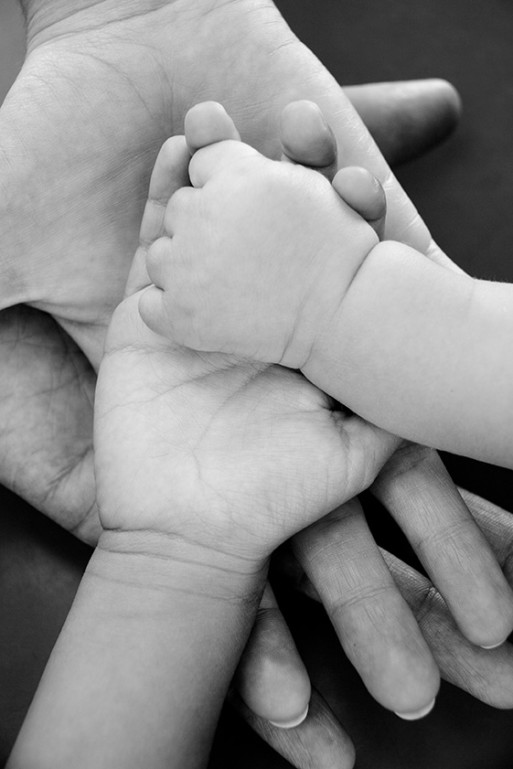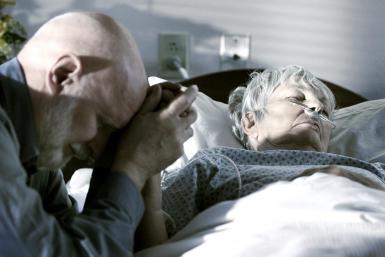This is part two of SevenPonds’ two-part interview with Lea Rose, a clinical counselor and psychotherapist with over two decades of experience. (Read part one of the interview here.) She is the founder of the Living and Dying Well Counselling Centre in Melbourne, Australia, and the author of the book “Let’s Talk About It!: Finding Peace with Death and Dying in Everyday Life.”
Juniper: Is there room for euthanasia in dying well? Do people who choose to end their lives to avoid suffering miss out on receiving the gift of care and gentleness toward the end of their life?

Lea Rose BA. Dip ed. Adv. Dip Couns. MACA CV
(Credit: learose.com.au)
Lea: I’ve seen thousands of people die, and I’ve never seen anyone die badly who knew how to die with the support of their loved ones. There are stages of transition, but there isn’t necessarily suffering at the end of someone’s life. It’s like birth: we can all choose to have Cesareans now and not feel anything, but the natural process has its own rewards and purpose. Perhaps euthanasia has a place in dying well when someone’s in stage 4 cancer, but if someone’s transitioning well, then there’s no need. I think in those instances, if euthanasia was legalized, hospitals would strongly encourage people to make that choice under the auspice of reducing suffering, because it would save money.
When someone is going through the final phases of their lives, that is often the most intimate time they will ever have with their family. A year ago I helped a 32-year-old woman who was dying of cancer be supported by her family. The family wasn’t in denial about what was happening, but she was. The main issue was her dignity. She didn’t want anyone to see her deteriorating. She wasn’t afraid of death, but she didn’t want to receive care such as being washed, taken to the toilet, and all the things that have to happen when someone is dying.
So, I told her a story about when I gave birth. I was sitting in my own feces and urine; there was blood everywhere; I was naked in a room full of people — it was quite disgusting, honestly. But you don’t see it like that, because you’re about to give birth to a baby, so you go through that natural transition. The whole time, my mother was there with me. So I told that woman, “Your mother had you out of her own body. When you were a little baby, you would have vomited and had diarrhea, and all those things. Do you think she hasn’t seen it all? By letting your mother take care of you, you’re letting her love you. The greatest gift you can give her is to let her care for you, because when you’re not here, she will remember the times that she bathed, carried, and held you.”

Credit: learose.com.au
That was the shifting point, and after that, that’s what happened. She died at home, with her mother, father, sister and other family present, and her mother is doing well now because she had that time with her daughter. That time would have been lost if euthanasia had come in, because two weeks before that young woman died, she might have said absolutely, yes, I want it. Things were getting tough because she was now incontinent, and it was very real for her then that she was dying. The two weeks that it took her to die well had a transformative effect on the entire family.
When people transition with support, not only do they receive an incredible amount of care and love, but it helps their loved ones with their grieving process. When my own mother had a stroke, I looked after her for three months; my sister barely visited. My mother couldn’t read, write, talk or sit upright.
It’s been six months since my mother died, and those three months of caring for her carry me now. My daughter and I slept in my mother’s room, held her hand, did everything we could for her, and that is what makes our grief bearable. My sister immediately went on antidepressants because she lost that ability to be intimate with my mother, and lost that connection.
Denial plays a big factor in the grief of survivors. When someone is physically declining, there’s this thought that if we don’t have to see it, our grief will be less, or they will get better and then we’ll come visit. But it doesn’t work like that. The avoidance makes the grief worse, and this is why euthanasia needs to come into public awareness alongside death education. I wrote my book so that people could use it to help themselves or someone else care for a dying person instead of avoiding the situation and feeling guilty about the lost opportunity after.
Dying well also requires that family and caregivers, including the medical community, understand the stages of dying. For example, giving someone intravenous feeding while they are trying to die is totally unnecessary. They’re not starving — the body is trying to dry out. It’s part of the process. In pediatric wards, no one wants to tell the family that a child doesn’t need to be fed anymore because they’re dying. This level of denial is reflected in my book. I wanted the phrase “understanding the physical stages of dying” on the front cover, but my publisher really resisted it. However, this is what people really need and want to understand. This is how far we are from where we need to be.
Juniper: SevenPonds recently published an article on the need to educate parents, caregivers, and people who work with children regarding how to facilitate a child through their grief process. One can reasonably hypothesize that the adults will also learn something through this process. Can you speak to this?
Lea: Giving children death education is the way to go, yes. When someone walks into my office and they’re already full of cancer, they can’t deal with death education then. It’s like sex education: It’s in the back of your mind before you’re having sex, and you know about STIs, pregnancy, and the rest. You have an understanding of cause and effect, and what will happen. You may not understand sex because you haven’t experienced it yet, but when the time comes, that education comes through as well. Death education is no different. If you have that education and you’re dealing with a family member or friend who’s got someone who’s dying, you already have this information. It blows my mind that doctors don’t receive death education — maybe one hour to one week of their training. Yet oncologists often spend all day everyday telling people they’re dying.
I think people are more afraid of their grief than the suffering of the dying. It’s all mixed up and needs to be separated out a bit. What people are saying is that they don’t want their loved one to suffer, but actually they don’t want to see death because they don’t want to grieve. They think that if they avoid the hospitals, or the person looks lovely, and then gets euthanized in a nice place then their grief will be lessened, but it doesn’t work like that. Their grief is just as deep or it’s worse, because the shock is greater, because they haven’t seen their loved one go through the stages of death.

Credit: dying.about.com
Dying well also requires that family and caregivers, including the medical community, understand the stages of dying. For example, giving someone intravenous feeding while they are trying to die is totally unnecessary; they’re not being starved — the body is trying to dry out. It’s part of the process. In pediatric wards, no one wants to tell the family that a child doesn’t need to be fed anymore because they’re dying. This level of denial is reflected in my own book; I wanted the phrase “understanding the physical stages of dying” on the front cover, but my publisher really resisted it. However, this is what people really need and want to understand. This is how far we are from where we need to be.
Juniper: Thanks for your insights, Lea, and for speaking with us today.
Lea Rose: You’re welcome.

 What is Public Death Education? An Interview with Lea Rose, Part Two
What is Public Death Education? An Interview with Lea Rose, Part Two


 Our Monthly Tip: Make an “In Case of Death” File to Ease Loved One’s Grief
Our Monthly Tip: Make an “In Case of Death” File to Ease Loved One’s Grief
 Passing of Beloved Comedian Births a New Comedy Festival
Passing of Beloved Comedian Births a New Comedy Festival















